Garlic and Racing Pigeons
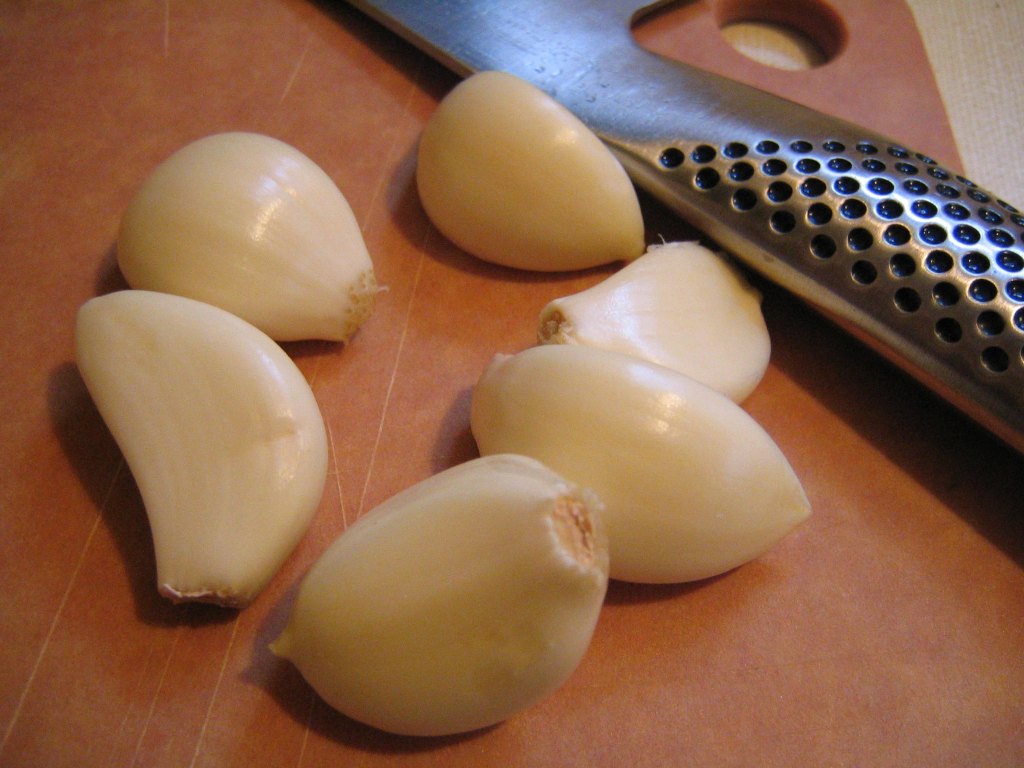 Now what about the use of garlic in racing pigeons? It is a popular, widely used product, but solid, scientific information on its effects in pigeons seems to be scarce. Everything from cloves of garlic to powders, pills and oils are available in health food stores, grocery stores and by companies selling products for pigeons. Are there any real benefits, or are the “benefits” in the eye of the beholder, i.e. the fancier who uses garlic products? Little scientific information for racing pigeons seems to be readily available, but it should be possible to extrapolate information from work done in humans and laboratory animals to pigeons.
Now what about the use of garlic in racing pigeons? It is a popular, widely used product, but solid, scientific information on its effects in pigeons seems to be scarce. Everything from cloves of garlic to powders, pills and oils are available in health food stores, grocery stores and by companies selling products for pigeons. Are there any real benefits, or are the “benefits” in the eye of the beholder, i.e. the fancier who uses garlic products? Little scientific information for racing pigeons seems to be readily available, but it should be possible to extrapolate information from work done in humans and laboratory animals to pigeons.
Firstly and foremostly, logic based on a number of studies, says that the best source o the good effects of garlic is fresh cloves of garlic. Manufacturing procedures in the preparation of garlic powders, liquids and oils can vary considerable, and since important, active compounds in garlic can be lost very easily when garlic is processed to produce these liquids and powders, ect,. it seems best to avoid these products as they may contain few, if any, of the useful compounds in garlic. Further, it is best to crush cloves of garlic and add them directly to drinking water for pigeons, rather than heating or boiling them, to avoid losing a number of key chemicals in the cloves. Remember that heating garlic cloves above 60� can cause the loss of odour and medicinal properties.
Secondly, garlic may provide a temporary antibiotic effect on disease-producing bacteria, fungi and yeasts, both in the digestive tract and body tissues, by reducing their numbers during the period that it is in the drinking water. Thirdly, the trace minerals selenium and germanium present in garlic may give a boost to the immune system of pigeons, to increase their ability to fight disease-producing organisms of many kinds. IN domestic livestock, selenium is known to be important in the normal development of the immune system while the animal is growing on the uterus. A deficiency of selenium and Vitamin E has a definite adverse effect, because in such deficiencies, the development of immune system is retarded. As a result, the newborn animal or bird may be completely or severely restricted from protecting itself against invading organisms of all kinds.
Fourthly, although dissolving blood clots (the cause of heart attacks and strokes in humans) or preventing their formation in the arteries of humans is important in human medicine, it is known that racing pigeons are highly resistant to the buildup of fatty substances in their arteries. In human, these fatty substances may clog blood vessels or they may induce the formation of a clot at the point where the vessel is narrowed by the fatty deposits, and result in a heart attack or stroke. In contrast to racing pigeons, some meat- producing breeds of pigeons are very susceptible to a buildup of fatty substances in their vessels. So garlic might be of benefit to meat varieties of pigeons, but as racing pigeons are highly resistant to this type of buildup, the benefit might not be so great in the blood vessels of racing pigeons.
Fifthly, garlic as a de-toxifying agent could have a role as a “blood purifier” or a “tissue purifier,” so to speak—whatever these phrases may mean, since they can and do cloak a great deal of the ignorance we all share on this subject. Both are meaningless expressions that really don’t explain anything, but they are used commonly in the mystique of pigeon racing! That aside, there are indications that chemical compounds in garlic may assist the body to de-toxify, neutralize or eliminate noxious substances. In pigeons, the use of garlic after a race may assist the so-called “depurative” diets—whatever that might mean—in restoring a bird to normal racing condition. Whether lactic acidosis is a real problem in returned racers is still debatable, in my opinion. Because, fat is unquestionably the major fuel for racing, and because the burning of fat for energy by racing birds is an aerobic process in the body, lactic acid—which results when glycogen is used as fuel in an anaerobic process—should not be produced, at least in any great amount. Braking and landing at the end of a race are very likely anaerobic processes, but the amount of lactic acid produced from such rapidly occurring events should be miniscule. In theory, it could be shown that birds actually sprint the last few miles of a race, much as a human marathon runner might sprint the last 100 yards or so, then there could be a good basis for believing that lactic aced—one of the so-called “impurities” in the blood—is produced, and that it needs to be eliminated. Lactic acid is known to be produced in human distance runners who sprint the last leg of a race. However, in most cases, usually a 20 minute “cool-down” walk will effectively “burn off” or eliminate the lactic acid from the system. It is known that pigeons that are not exercised reasonably soon after a long grueling race may develop marked swelling of the breast muscles that become hard and board-like. The birds become “tied up” and have difficulty flying from the floor to the lowest perches or nest boxes. Given this knowledge, it is possible, and indeed likely, that lactic acidosis is involved in such situations and that early workouts after a race would eliminate this problem. It is also possible that the use of crushed garlic cloves in drinking water at this time might add some extra benefit in allowing the liver and other organs to metabolize lactic acid and other compounds, and to help restore the birds to normal racing condition. Dosages of garlic for pigeons are difficult to come by, particularly since there is such variability in the amount of the key chemical alliin, which is converted to the active compound allicin, in garlic cloves.
Garlic in racing pigeons remains quite an enigma, and as fanciers, we use it without really knowing why, but our ignorance is shared by many people, including the human and veterinary medical communities, who have only tantalizing bits of information to suggest that there may be a number of positive effects from the use of garlic. Certainly, as indicated earlier in this article studies in laboratory animals and humans suggest a number of desirable effects from the use of garlic. Whether these effects apply directly to racing pigeons is just not known at this time. However, present evidence from human and laboratory animal work, and the empirical experience of many fanciers, suggest that, when used judiciously, crushed cloves of garlic, used in drinking water, may be a highly useful product in the loft throughout the year, but especially during rearing and the racing season. At present, garlic-based oils, powders and pills are likely much less useful. Possibly newer developments in extracting the active principles of garlic may get around the present problems associated with current methods. Until these problems are solved, fresh cloves of garlic from the grocery store are still the best source of the medicinal properties of garlic. I hope that this sketchy outline of the potential value of garlic, and some of its risks, may stimulate more controlled research on its value (or lack of) in racing pigeons. There is much to learn! This article merely scratches the surface.
Garlic and Racing Pigeons by Dr. A Chalmers, DVM
Sign up for the Pigeon Insider Newsletter, click here to learn more.
The Pigeon Insider – The Leading Online Pigeon Racing and Racing Pigeons Magazine!


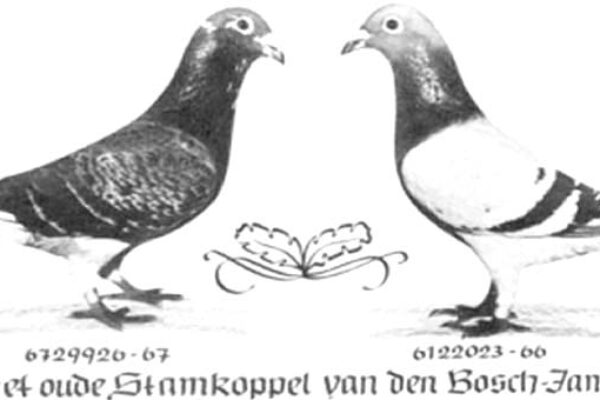

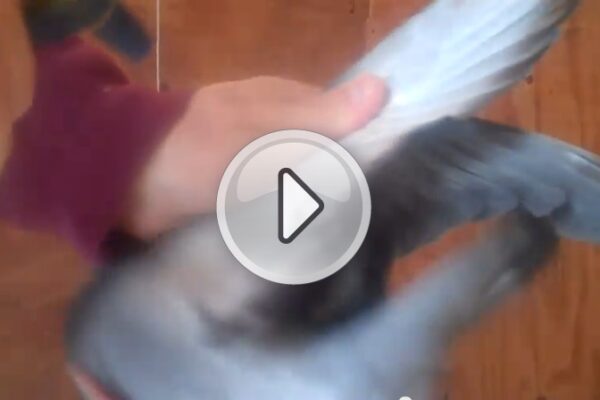
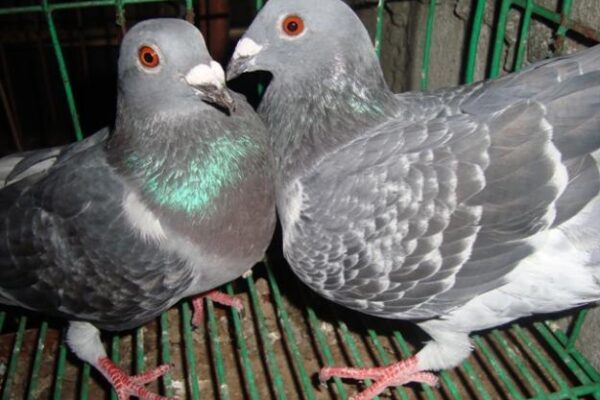
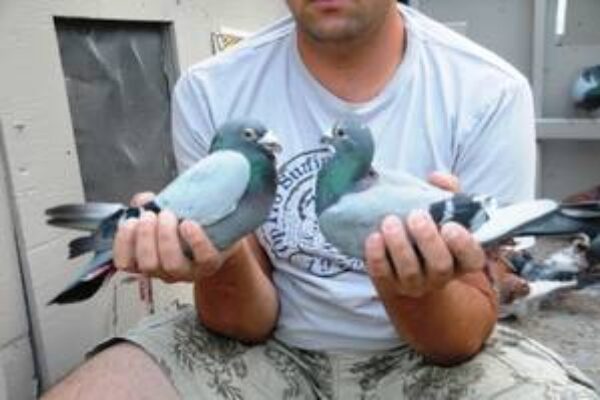
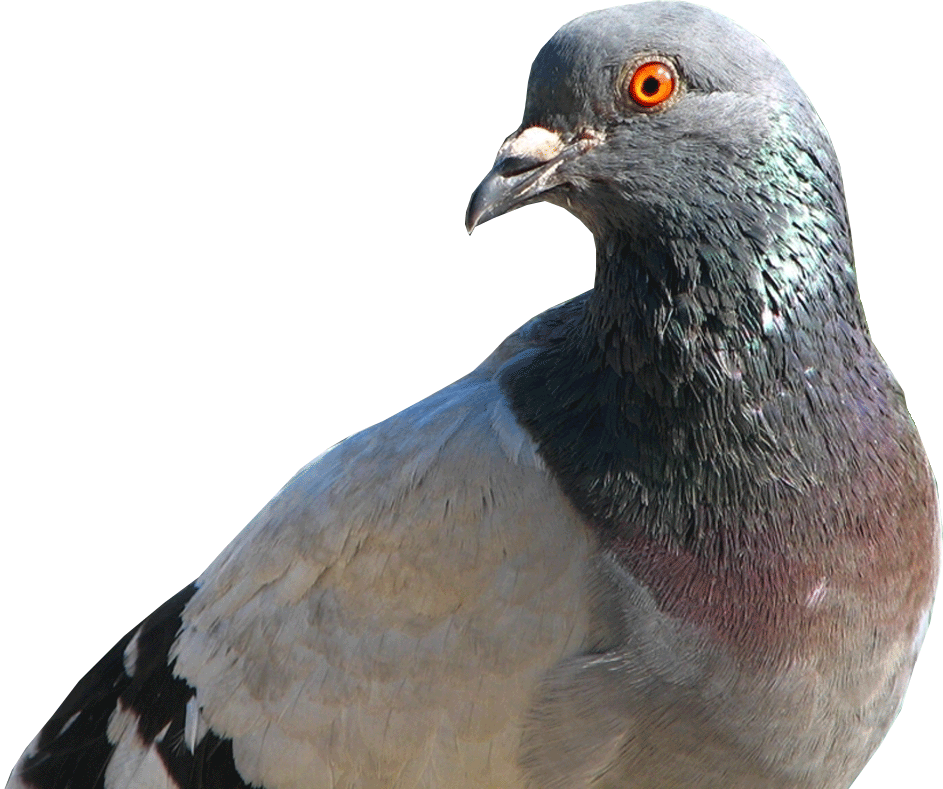
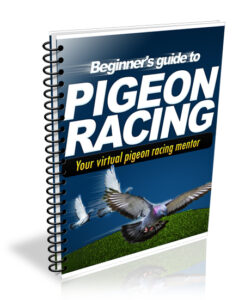
Can i put entire clove into pigeon mouth rather than giving with water ? this way is easier to feed as often pigeons don’t like the smell of garlic ?
Pls help.
yes you can with no problem….terry
Hi Agius M iv’e done some research just give it at the first of the week crushed in water then a
probiotic the next day fresh water the day of shipping and don’t feed a heavy mix thursday and if
flying short races feed very light early Friday morning oil seeds the last two days Brad.
Garlic is beneficial to our pigeon , that’s why the market is saturated with garlic oil with different brand name
garlic is always healthy for everyone. It is made available by God in every season because the creator knows what He is doing!It has vitamins minerals sulphur producing compounds. In pigeons, garlic is recommended for the antibacterial, antifungal, and antiviral effects. Use it regularly and your pigeons body will be healthy. If the pigeons doesn’t come, it is not because of the garlic. It could be due to there homing instinct, which garlic cant be involved with.
I am great believer in FRESH garlic, which I crush and place in lukewarm (not hot) water for a few hours then dilute with fresh water in the drinker. Use your nose. If it smells very strong, it probably needs more water in it. I leave it for about 48 hours, once a week, followed by apple cider vinegar, about 5ml per litre for 48 hours. Dont know if it does any good, but they sure seem healthy.
Hi I have used garlic in the past 24/7 , but when i use it the birds fly good around the loft but when i send them to the race . NO GOOD. So i do not understand When flyers say they fly good when they use IT.
do you crush the garlic or do you but the full clove in the water
Hey Rick,
Here’s a great vid on how John Glemser adds garlic to his birds drinking water,
https://www.pigeonracingpigeon.com/2009/11/26/video-health-tip-adding-garlic-to-your-birds-drinking-water/
Yours in the sport,
-Chris
I have question.
Why the races the results were is not good, when I used fresh garlic in whater?
Please email me back
[email protected]
Thank you
Dan
how to use garlic in water
Hi Hysni,
Here is a great video that I think answers your question just click the link below to check it out:
https://www.pigeonracingpigeon.com/menu/video-health-tip-adding-garlic-to-your-birds-drinking-water/
Thanks
-Chris
Hi agius m, I doubt that the garlic had any negitive effect on your racing results. I suspect that due to their increased vigour and feeling healthy,the birds were flying too much at home and running their race before they even get to the starting line.My birds get garlic as often as possible and brings good form.I have an open loft in the off season so the birds can get as much exercise as they want and they will fly for hours if you let them,sometimes they will disapear for up to an hour at a time.But once the racing season starts you have to lock them up and only let them out half an hour a day just before you call them in for dinner.
I note several fliers did not improve their results with garlic usage.
I have just commented in the garlic;some facts for the fancier section so anyone interested please read my comments there.
I don’t use garlic although I did many years ago. I can’t be bothered with the mess. I’d rather try and breed more top pigeons.
My birds are let out everyday except the day after the race and the day of basketing.
Because I live in the country and have no raptor problem I let my birds out for 5 or 6 hours most days. Usually they fly for about half an hour then they land and hit out every 20 minutes or so for the rest of the time. Some of them are lazy, that doesn’t matter. They’ll still have to do the business on race day!
The thing I find is that all the fresh air i.e. oxygen and suns rays are all the tonic the birds need.
You should note that if the birds fly alot they shouldn’t be rationed and there should be fat seeds in the mix. Contrary to past opinions even up to e.g. 30% mixed canary seed in the mix won’t hurt the birds. Of course the cocks will be more excited and may need darkening to calm or simply can be fed differently.
I have a major health disability i.e. Chronic Fatigue Syndrome for many years so can’t toss the birds really unless my wife does it but still achieve results as good as the best here in Auckland, N.Z.
So the jury is out on garlic but those that think it helps should keep using it, certainly no harm.
Feel free to check out my blog at
ferguspigeonman.wordpress.com
Keep em fly’n Fergus Elley BVSc Massey, N.Z. 1984.
when i used fresh garlic in water the pigeons started to fly more but when i come for the races the results were not good